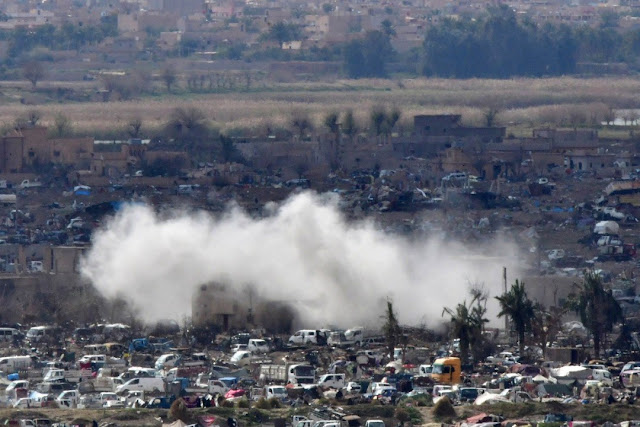Malaysian returnees from Syria and Iraq are
frustrated with their failure to achieve martyrdom with the collapse of the
Islamic State’s caliphate and could attempt to continue their holy mission in
their homeland by staging suicide attacks, Malaysia’s top police officer warned
on Tuesday.
“There has been a lot of hype that these
[returnees] are frustrated fighters. They have not been able to implement all
their ideals, practise what they have been trained for … so they want to do
this [holy mission] back home to release their frustration,” Inspector-General
of Police Abdul Hamid Bador said in an interview with the South China Morning
Post.
Currently, more than two dozen Malaysians
are holed up in refugee camps in northern Syria after the fall of ISIS in March.
“All these possibilities are there when
they return, based on the experience of countries who have dealt with
returnees,” Bador said. “We will cover all these angles. We will deal with it
cautiously.”
.
Bador said the failure of tech giants to
identify and remove extremist messages swiftly has allowed impressionable young
people to easily access harmful material, which ends up radicalising them.
.
Facebook, Twitter, WhatsApp and Google are
platforms commonly exploited by ISIS and radical groups to disseminate their
propaganda. Many of the Malaysians in refugee camps, as well as others who are
in Malaysia, were radicalised online, Bador said.
“Once they are exposed to this highly
inflammatory, extreme literature on religion … quoting the Koran out of
context, they will set up their own chat group [to spread the word] and set up
a cell,” said Bador, adding many of the radicalised youth are aged 20 to 23.
“Hopefully, these [tech] companies would be
more responsible [and] proactive, and appreciate the problem faced by
enforcement officers in countries like Malaysia.”
A total of 102 Malaysians travelled to
Syria and Iraq to join Isis from 2013, and 40 were killed in combat. Nine died
as suicide bombers, according to police.
From 2013 until February 2019, Malaysian
police foiled 24 terrorist plots. They also arrested 457 suspected militants,
including 131 from 21 countries. The largest group of foreign terror suspects
came from the Philippines, totalling 47.
Other terror threats in Malaysia come from
members of Abu Sayyaf, a Philippine group that has links with ISIS.
Early Tuesday morning, suspected Abu
Sayyaf-linked gunmen were believed to have abducted 10 crew members from a
fishing boat off the eastern Malaysian state of Sabah.
Abu Sayyaf is notorious for conducting
kidnappings in the waters off Sabah and have beheaded foreigners after ransoms
have not been paid.
In the past two years, Malaysian police
have arrested scores of Abu Sayyaf fighters hiding in Sabah after running away
from the southern Philippine island of Mindanao to escape Filipino security
forces.
The Eastern Sabah Security Command
(ESSCOM), which safeguards the waters of Sabah, will be restructured to
maximise efforts to counter threats from Abu Sayyaf, Bador said.
Bador, 60, was appointed as Malaysia’s
police chief for a two-year term in May after serving as the director of
Special Branch, the intelligence arm of the Royal Malaysian Police (PDRM).
He spent 15 years in counterterrorism
operations in Malaysia and Southeast Asia, including the 2001 Bali bombings.
Credit: South China Morning Post – 18
June2019
https://bit.ly/2FhgFL2
FOLLOW US👇
https://facebook.com/alhaqcentre2020
https://twitter.com/alhaqcentre
https://instagram.com/alhaqcentre

Comments
Post a Comment